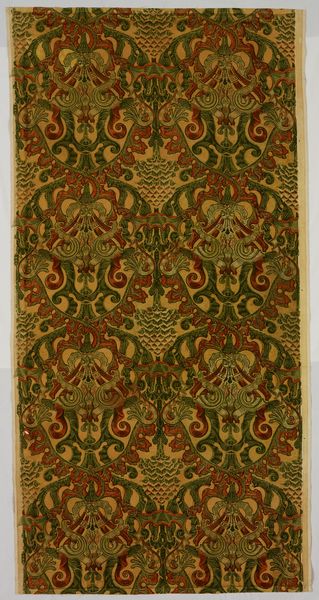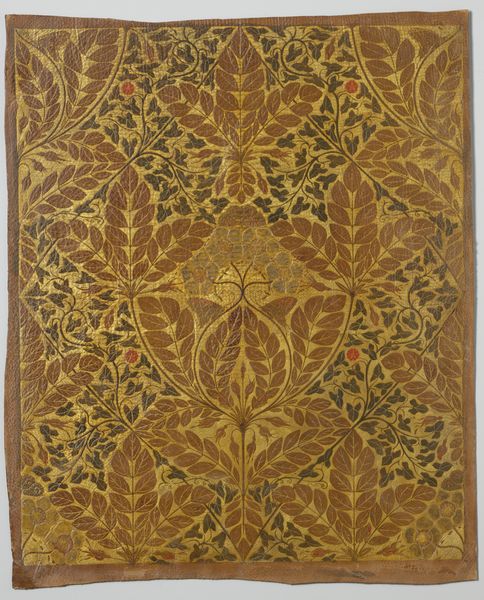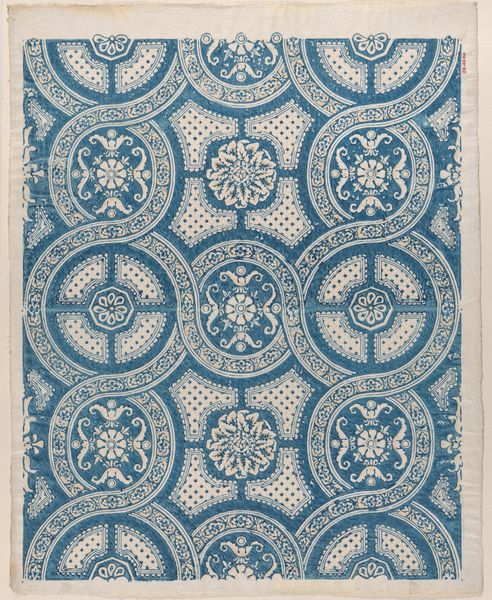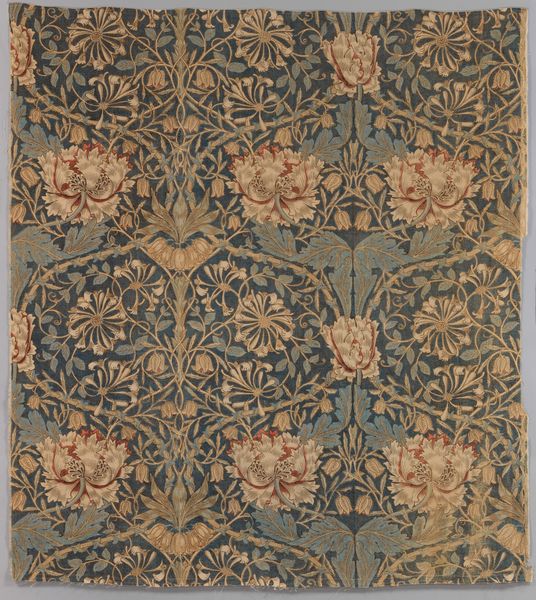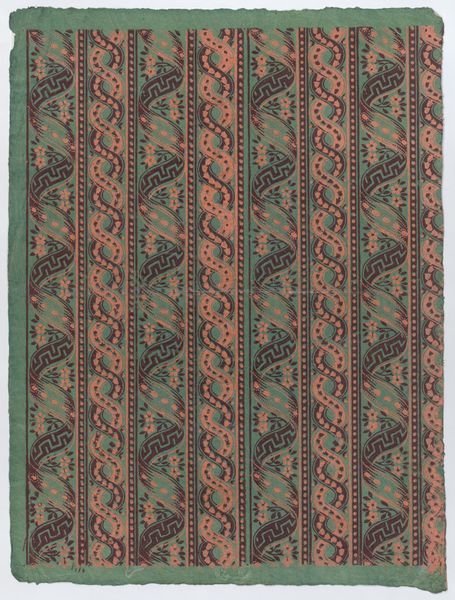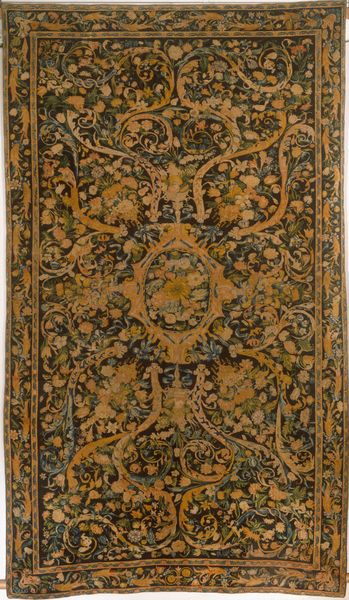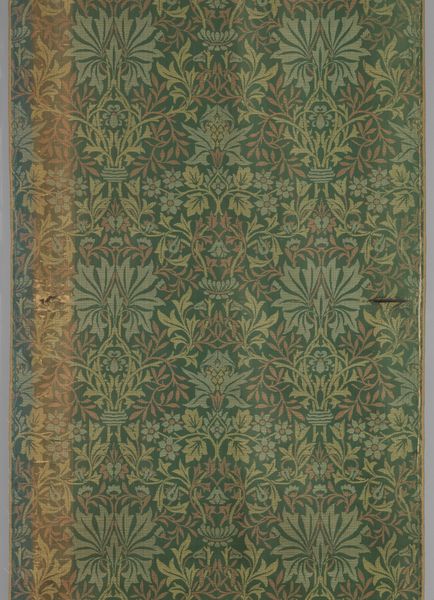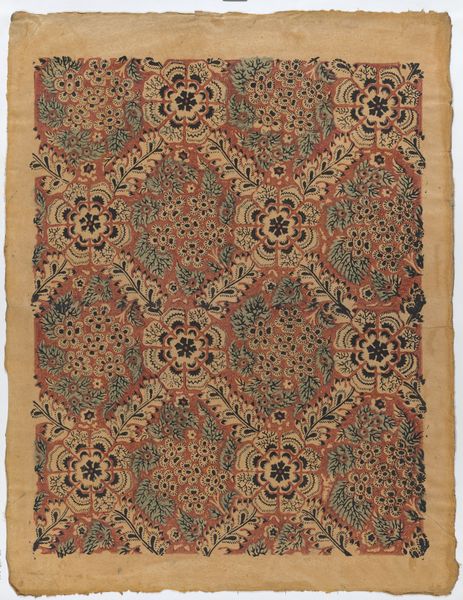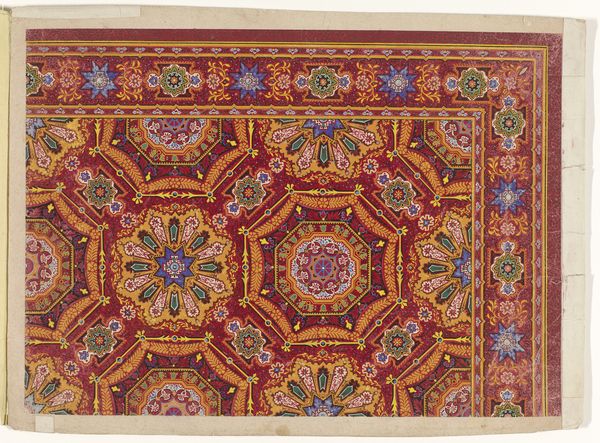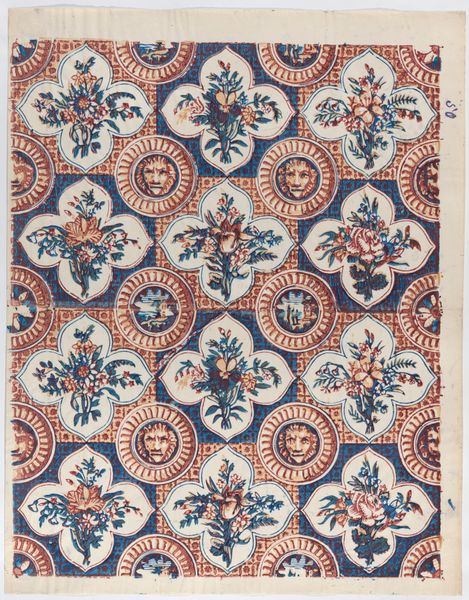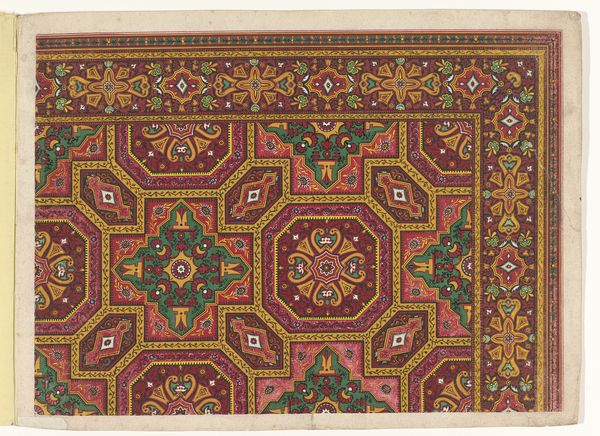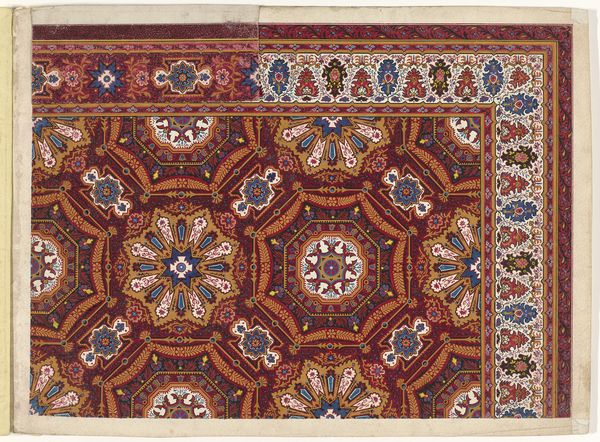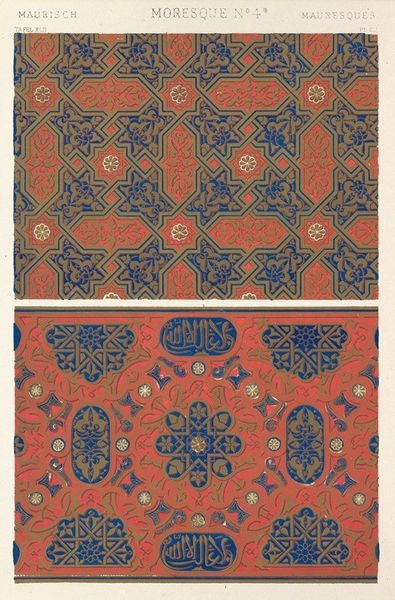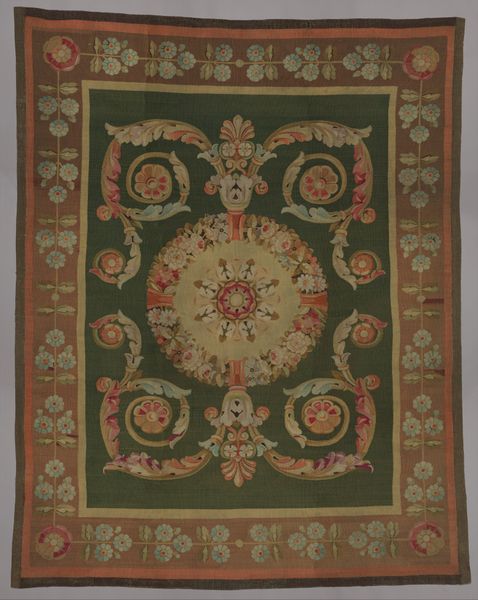
Sheet with a running circles pattern with rosettes 1800 - 1900
0:00
0:00
print, paper
#
natural stone pattern
#
naturalistic pattern
# print
#
paper
#
geometric pattern
#
pattern background
#
abstract pattern
#
organic pattern
#
geometric
#
repetition of pattern
#
vertical pattern
#
pattern repetition
#
layered pattern
Dimensions: Sheet: 14 in. × 17 11/16 in. (35.6 × 44.9 cm)
Copyright: Public Domain
Editor: Take a look at this print, "Sheet with a running circles pattern with rosettes" made sometime in the 19th century, artist unknown. I’m struck by how formal yet comforting this repeated design is, particularly the earthy colors and the layered pattern. It's a page that could have adorned a book of fabric designs, or perhaps was even a study for wallpaper. What can you tell me about it? Curator: Well, this is a fascinating example of the interplay between art, industry, and social trends during the 1800s. It demonstrates how the democratization of printmaking allowed for widespread access to decorative motifs, impacting domestic aesthetics. Consider how something like this may have influenced interior design of middle-class homes at the time. What do you notice about the composition? Editor: The design repeats circles, with the interior designs switching off to give some variety and avoid the effect from being dizzying. But how would access to design democratize anything? Curator: It touches on a critical shift. Mass production of printed materials, including textiles and wallpapers, allowed access to style and artistry for classes who previously couldn't afford them. A pattern like this, disseminated widely, helped shape notions of taste and class identity. Do you see any evidence of specific styles or motifs in play? Editor: I suppose the rosettes suggest an interest in botanical studies that was sweeping artistic and intellectual circles? Curator: Precisely. And this isn't just aesthetic. This imagery also tells us a lot about contemporary ideals. Nature, order, and accessibility all come together in an accessible manner. Editor: It is an interesting thing to consider: how our aesthetic tastes reflect deeper social shifts and can contribute to cultural cohesion. Curator: Indeed. It is like viewing a history book that is crafted with imagery and colors instead of only words.
Comments
No comments
Be the first to comment and join the conversation on the ultimate creative platform.
